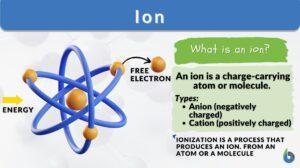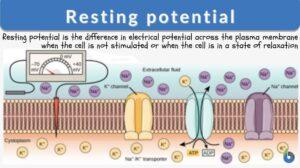Search Results for: magnitude
Neural Control Mechanisms
Nerve cells called neurons generate electric signals that pass from one end of the cell to another and release chemical... Read More
Sensory Systems
A sensory system is a part of the nervous system consisting of sensory receptors that receive stimuli from the internal and... Read More
Movement of Molecules Across Cell Membranes
Diffusion Diffusion is essentially the movement of molecules from a region of higher concentration to a region of lower... Read More
Graded potential
Definition noun, plural: graded potentials A change in the electrical potential on the membrane of an excitable cell (e.g. a... Read More
Generation
Generation 1. The act of generating or begetting; procreation, as of animals. 2. Origination by some process, mathematical,... Read More
Inhibitory postsynaptic potential
Inhibitory Postsynaptic Potential Definition An inhibitory postsynaptic potential is a type of synaptic potential. It is... Read More
Dead Man Walking
Dead Man Walking: Wade Davis and the Secret of the Zombie Poison By Patrick D. Hahn Accepted on September 4, 2007 Twenty... Read More
Circulation
Blood Blood is composed of a liquid, plasma, and blood cells such as erythrocytes (red blood cells,) leukocytes (white... Read More
Trophic level
In ecology, a trophic level pertains to a position in a food chain or ecological pyramid occupied by a group of organisms... Read More
Feedback mechanism
Feedback Mechanism Definition What is a feedback mechanism? A feedback mechanism is a physiological regulation system in a... Read More
Tidal amplitude
tidal amplitude The magnitude of the difference in elevation between low and high tides at a particular point in a body of... Read More
Biodiversity
Biodiversity Lead Author: J. Emmett DuffyThis article has been reviewed and approved by the following Topic Editor: John... Read More
Phosphorylation
Phosphorylation Definition We can define phosphorylation as a biochemical process in which a phosphate molecule is added to... Read More
Colony-forming unit
Colony Forming Unit Definition A Colony Forming Unit (CFU) in microbiology and cellular biology refers to a measure of... Read More
Resting potential
Resting Potential Definition The resting potential of a cell is defined as the difference in electrical potential across... Read More
Equilibrium
Equilibrium Definition In Biology Equilibrium refers to the state of balance and stability. In biology, equilibrium is... Read More
Proportion
proportion 1. The relation or adaptation of one portion to another, or to the whole, as respect magnitude, quantity, or... Read More
Respiration
Organization of the Respiratory System Each lung is composed of air sacs called alveoli - the sites of gas exchange with... Read More
















